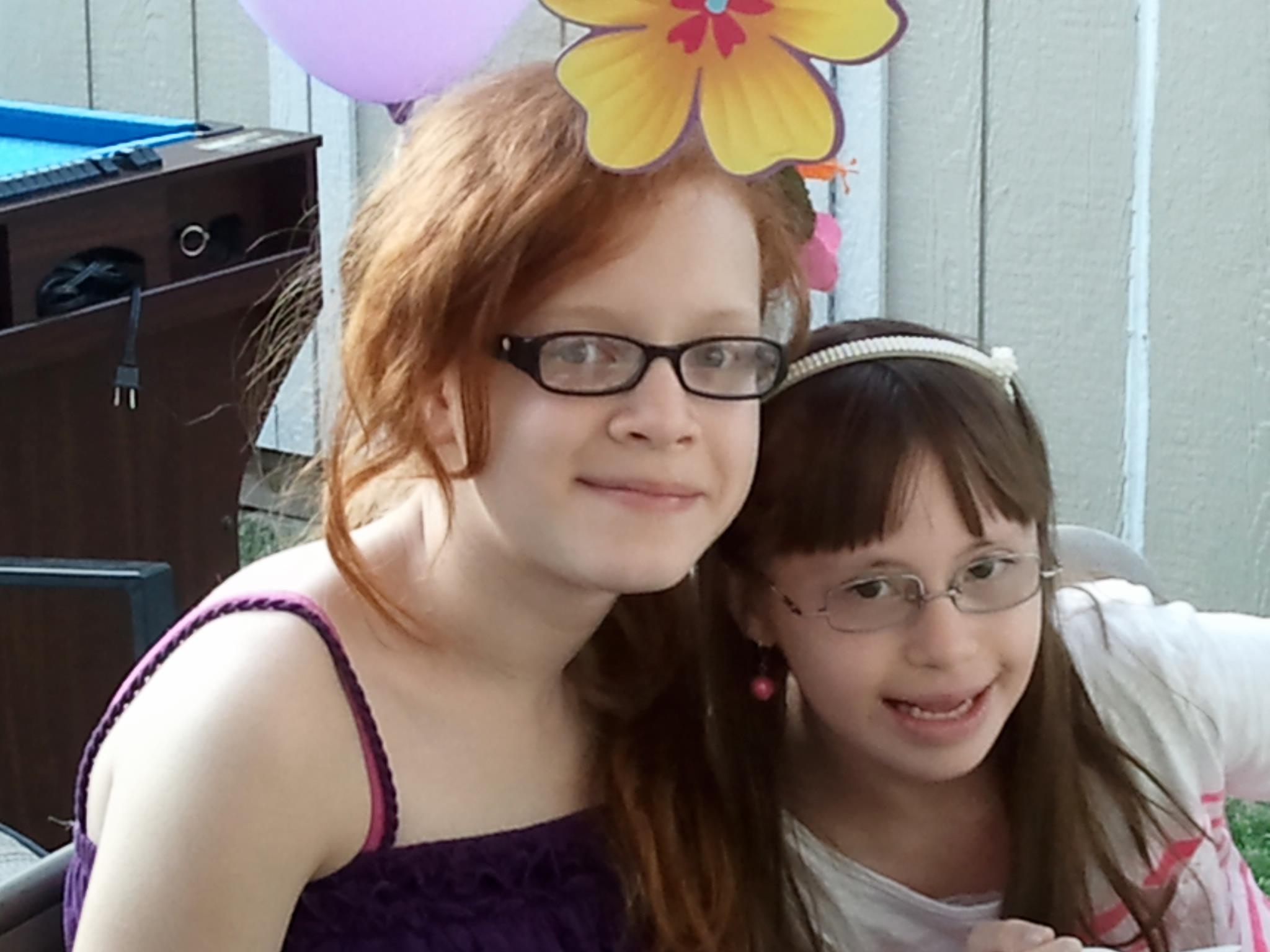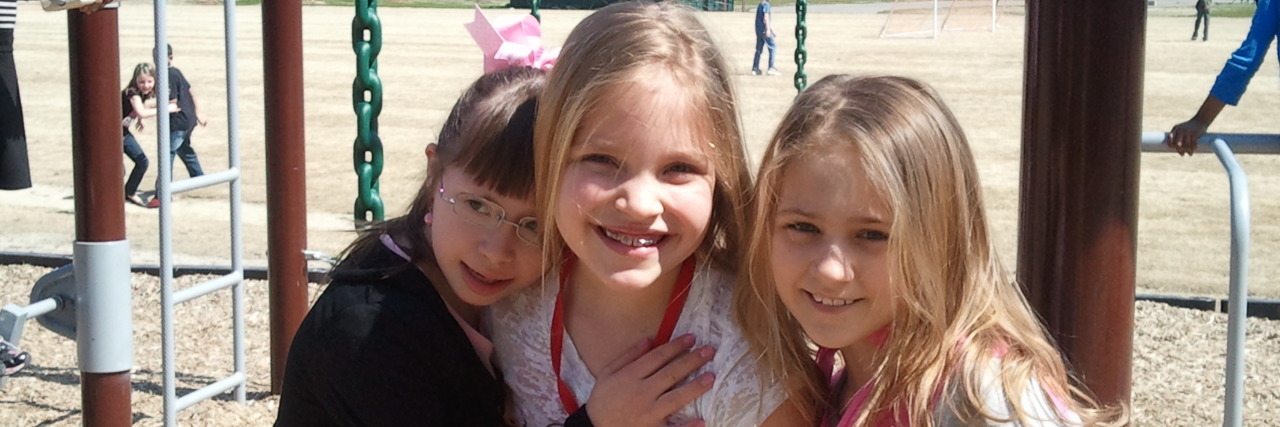Inclusion Benefits 'Typical' Students, Too
Editor's Note
This story has been published with permission from all individuals mentioned and pictured.
Third grade. Four girls play with complete freedom and happiness on the playground. Mackenzie, Alyce, Ashlyn and Yassy. Every single day they play, eat lunch together and are close friends. Some of the girls knew each other before this year, but the whole group is new to each other. These girls are good students. And even at this young age you can see leaders, athletes, cheerleaders and more in their eyes and their smiles.
The scene is an everyday American occurrence. But since my daughter Yassy has Down syndrome, I see every time these girls are together as a dream fulfilled.
Time flew. Yassy is now a senior in high school. She has always been 100 percent included in general education courses. This inclusion has benefited her greatly.
But today I write about how inclusion has impacted those around Yassy. The “typically developing” students. The third grade group is no longer together as this is a transient area. The next year many had already moved. And now all girls are in separate cities and / or schools. But, those fond memories remain and due to social media we are all still in touch.
Mackenzie wants to be a physical therapist. She is identified as talented and gifted, and is as beautiful in every way as she is smart. Ashlyn wants to join the military and be a doctor. She is also identified as talented and gifted, and is gorgeous inside and out. Alyce recently wrote an essay for college acceptance about wanting to be a human rights lawyer with an organization like the ACLU. She is an athlete, and is truly beautiful like the other girls.
All three girls want to help people. Their current success is a product of their hard work and very supportive families. And the extra layer of natural compassion they have grown up with will serve them well. The world definitely needs kinder doctors, therapists and lawyers.

Yassy has had many kind classmates over the years. Football players, athletes, student government leaders, artists and all kinds of students. She has gone to school with thousands of kids. They have watched her stand up in classes and tell disrespectful students to be quiet. They consider her to be a good student as they have seen her make honor roll many years in a row. They have stood up for her the few times that have been necessary. Great kids stand up to bullies, even at tender young ages. Think about the natural and positive ripple effect all students collectively have experienced.
Yassy is a unicorn. There are not many students who have the opportunities she has. Too many students just like her have been automatically placed in self-contained classes away from their peers. Many enter and leave school at different times and from different entrances. Their classes are often “over there,” in separate wings or at times different buildings. Data already proves these students most often are not getting meaningful educations. And their employment statistics are abysmal.
But what data do we have about the ripple effect?
In 2019, students have grown up doing lock down drills. Our youth are used to hiding under desks and told what to do if a shooter comes. Bullying is rampant and suicide is an issue. Social media does not help most of this — it often aggravates it.
What if all our schools did the right thing including all students from the beginning — preschool — with the proper supports? Instead of acting like insurance companies who deny services to save money, what if our schools just did what the law says? What their hearts and minds say? What educators went to school for — to educate our future generations to be kind citizens?
I ask the powers to be to look at statistics for the school districts that do practice inclusion for all. I feel sure they will see lower rates of all the problems that plague our schools today. Kids are not born with anger, hate and prejudice. That is learned behavior. When they grow up loving and supporting each other, it is a win for all.

